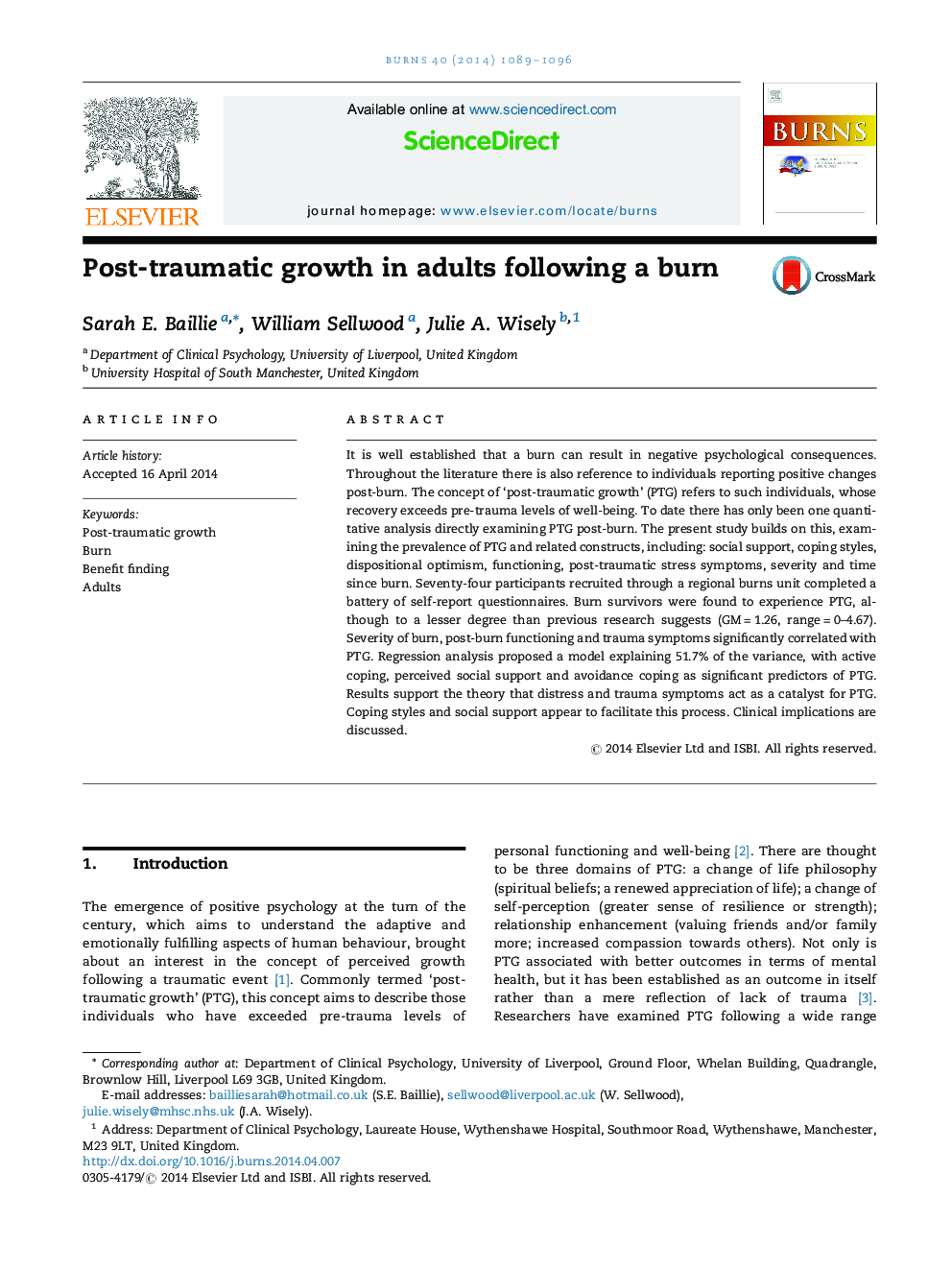| Article ID | Journal | Published Year | Pages | File Type |
|---|---|---|---|---|
| 3104725 | Burns | 2014 | 8 Pages |
It is well established that a burn can result in negative psychological consequences. Throughout the literature there is also reference to individuals reporting positive changes post-burn. The concept of ‘post-traumatic growth’ (PTG) refers to such individuals, whose recovery exceeds pre-trauma levels of well-being. To date there has only been one quantitative analysis directly examining PTG post-burn. The present study builds on this, examining the prevalence of PTG and related constructs, including: social support, coping styles, dispositional optimism, functioning, post-traumatic stress symptoms, severity and time since burn. Seventy-four participants recruited through a regional burns unit completed a battery of self-report questionnaires. Burn survivors were found to experience PTG, although to a lesser degree than previous research suggests (GM = 1.26, range = 0–4.67). Severity of burn, post-burn functioning and trauma symptoms significantly correlated with PTG. Regression analysis proposed a model explaining 51.7% of the variance, with active coping, perceived social support and avoidance coping as significant predictors of PTG. Results support the theory that distress and trauma symptoms act as a catalyst for PTG. Coping styles and social support appear to facilitate this process. Clinical implications are discussed.
